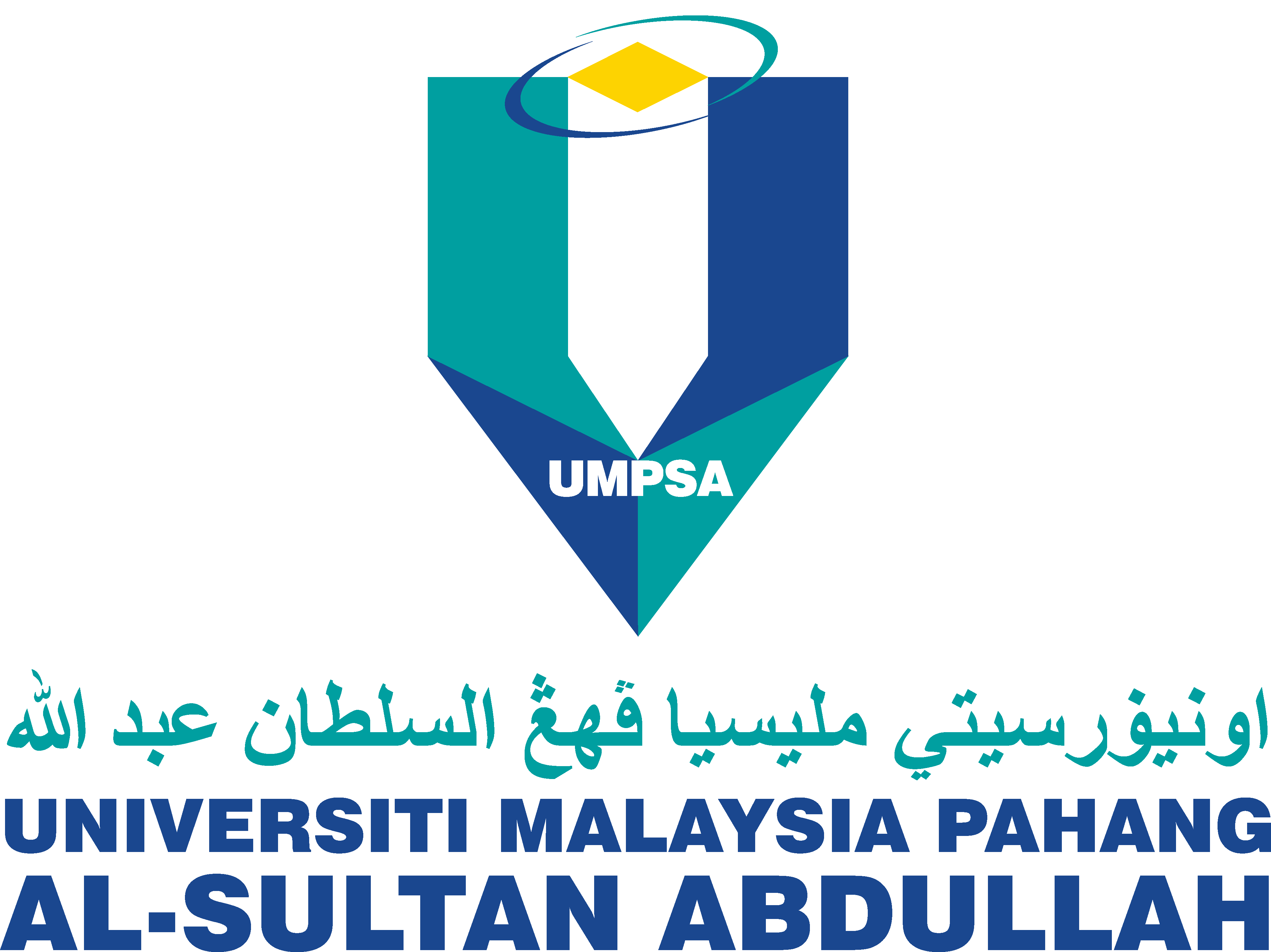Mixed convection flow of Brinkman fluid with convective boundary condition at lower stagnation point of horizontal circular cylinder
DOI:
https://doi.org/10.15282/daam.v2i1.6310Keywords:
Mixed convection , Lower stagnation, Circular cylinder, Porous MediumAbstract
Convective heat transfer occurs when heat is transferred from one level to another upon the motion of fluid. Understanding on the characteristics of fluid flow is essential since it will produce the desired output of the product. therefore, this paper examines the mixed convection flow at lower stagnation point of horizontal circular cylinder on Brinkman fluid saturated in porous region with convective boundary condition. The influence of Brinkman, mixed convection and conjugate parameter on the flow field are studied. To reduce the complexity of the equations, a suitable similarity transformation is used. The numerical results of governing equations are obtained via bvp4c tools in Matlab. The effect of mixed convection, Brinkman and conjugate parameter on the temperature and velocity profile, skin friction coefficient together with Nusselt number are analysed and portrayed in graph and table form. The velocity profile increased with improving mixed convection and conjugate value, but decreased with increasing Brinkman factor. It is also discovered that the temperature decrease when the mixed convection parameter increase. This theoretical results will benefit the researchers, particularly in the manufacturing industry, in validating experimental study data.
References
Ibrahim W, Ul Haq R. Magnetohydrodynamic (MHD) stagnation point flow of nanofluid past a stretching sheet with convective boundary condition. Journal of the Brazilian Society of Mechanical Sciences and Engineering. 2016 Apr;38(4):1155-64.
Gupta S, Kumar D, Singh J. MHD mixed convective stagnation point flow and heat transfer of an incompressible nanofluid over an inclined stretching sheet with chemical reaction and radiation. International Journal of Heat and Mass Transfer. 2018 Mar 1;118:378-87.
Kasim AR, Jiann LY, Rawi NA, Ali A, Shafie S. Mixed convection flow of viscoelastic fluid over a sphere under convective boundary condition embedded in porous medium. In: Defect and Diffusion Forum 2015 May 6 (Vol. 362, pp. 67-75). Trans Tech Publications Ltd.
Alwawi FA, Alkasasbeh HT, Rashad AM, Idris R. MHD natural convection of Sodium Alginate Casson nanofluid over a solid sphere. Results in Physics. 2020 Mar 1;16:102818.
Rafique K, Anwar MI, Misiran M, Khan I, Sherif ES. The implicit Keller Box scheme for combined heat and mass transfer of Brinkman-type micropolar nanofluid with Brownian motion and thermophoretic effect over an inclined surface. Applied Sciences. 2019 Dec 30;10(1):280.
Lavanya B. Radiation and chemical reaction effects on MHD convective flow over a porous plate through a porous medium with heat generation. Journal of Advanced Research in Fluid Mechanics and Thermal Sciences. 2020;68(1):11.
Acrivos A. On the combined effect of forced and free convection heat transfer in laminar boundary layer flows. Chemical Engineering Science. 1966 Apr 1;21(4):343-52.
Merkin JH. Mixed convection from a horizontal circular cylinder. International Journal of Heat and Mass Transfer. 1977 Jan 1;20(1):73-7.
Nazar R, Amin N, Pop I. Mixed convection boundary‐layer flow from a horizontal circular cylinder in micropolar fluids: case of constant wall temperature. International Journal of Numerical Methods for Heat & Fluid Flow. 2003 Feb 1;13(1):86-109.
Nazar R, Amin N, Filip D, Pop I. The Brinkman model for the mixed convection boundary layer flow past a horizontal circular cylinder in a porous medium. International Journal of Heat and Mass Transfer. 2003 Aug 1;46(17):3167-78.
Tham L, Nazar R, Pop I. Mixed convection boundary layer flow past a horizontal circular cylinder embedded in a porous medium saturated by a nanofluid: Brinkman model. Journal of Porous Media. 2013;16(5).
Anwar I, Amin N, Pop I. Mixed convection boundary layer flow of a viscoelastic fluid over a horizontal circular cylinder. International Journal of Non-Linear Mechanics. 2008 Nov 1;43(9):814-21.
Mohd Kasim AR, Mohammad NF, Shafie S, Pop I. Constant heat flux solution for mixed convection boundary layer viscoelastic fluid. Heat and Mass Transfer. 2013 Feb;49:163-71.
Ali A, Amin N, Pop I. Unsteady mixed convection boundary layer from a circular cylinder in a micropolar fluid. International Journal of Chemical Engineering. 2010 Jan 1;2010.
Sarif NM, Salleh MZ, Nazar R. Mixed convection flow over a horizontal circular cylinder in a viscous fluid at the lower stagnation point with convective boundary conditions. Science Asia. 2016 Feb 1;42:5-10.
Md SN, Zuki SM, Nazar R. Mixed convection over a horizontal circular cylinder embedded in porous medium immersed in a nanofluid with convective boundary conditions at lower stagnation point: A numerical solution. In: MATEC Web of Conferences 2018 (Vol. 189, p. 02004). EDP Sciences.
Gaffar SA, Prasad VR, Reddy EK. Magnetohydrodynamic free convection flow and heat transfer of non-Newtonian tangent hyperbolic fluid from horizontal circular cylinder with Biot number effects. International Journal of Applied and Computational Mathematics. 2017 Jun;3(2):721-43.
Aziz LA, Kasim AR, Salleh MZ. Development on mathematical model of convective boundary layer flow of viscoelastic fluid with microrotation effect under constant wall temperature thermal condition over a bluff body. ASM Science Journal. 2019;12:86-90.
Mahat R, Rawi NA, Shafie S, Kasim AR. Mixed convection boundary layer flow of viscoelastic nanofluid past a horizontal circular cylinder with convective boundary condition. International Journal of Mechanical Engineering and Robotics Research. 2019 Jan;8(1):87-91.
Sarif NM, Salleh MZ, Tahar RM, Nazar R. Numerical solution of the free convection boundary layer flow over a horizontal circular cylinder with convective boundary conditions. In: AIP Conference Proceedings 2014 Jun 19 (Vol. 1602, No. 1, pp. 179-185). American Institute of Physics.
Hayat T, Shehzad SA, Alsaedi A, Alhothuali MS. Mixed convection stagnation point flow of Casson fluid with convective boundary conditions. Chinese Physics Letters. 2012 Nov 1;29(11):114704.
Aman S, Ismail Z, Salleh MZ, Khan I. Flow analysis of second grade fluid with wall suction/injection and convective boundary condition. Journal of Advanced Research in Fluid Mechanics and Thermal Sciences. 2019;58(1):135-43.
Downloads
Published
Issue
Section
License
Copyright (c) 2021 The Author(s)

This work is licensed under a Creative Commons Attribution-NonCommercial 4.0 International License.




